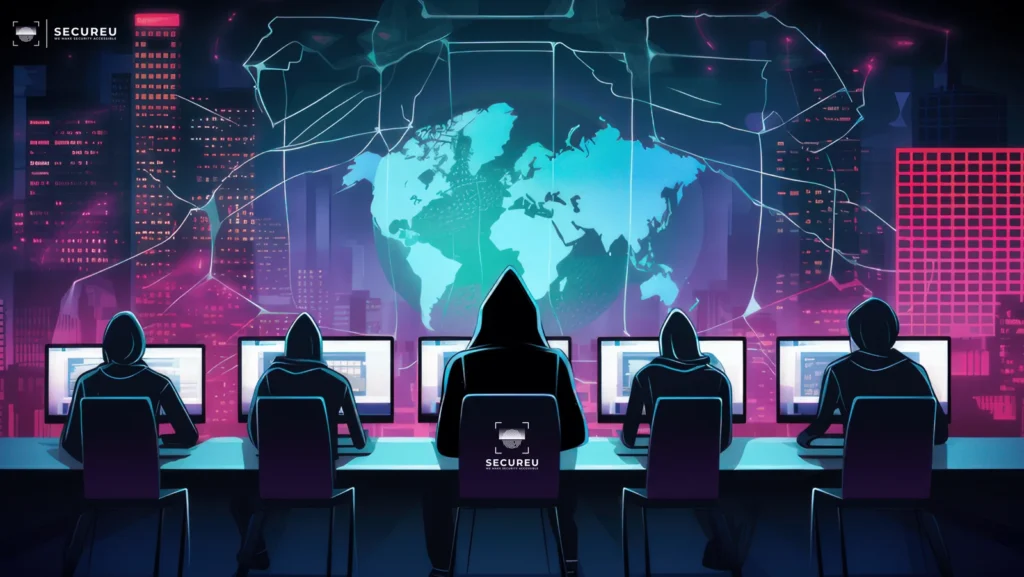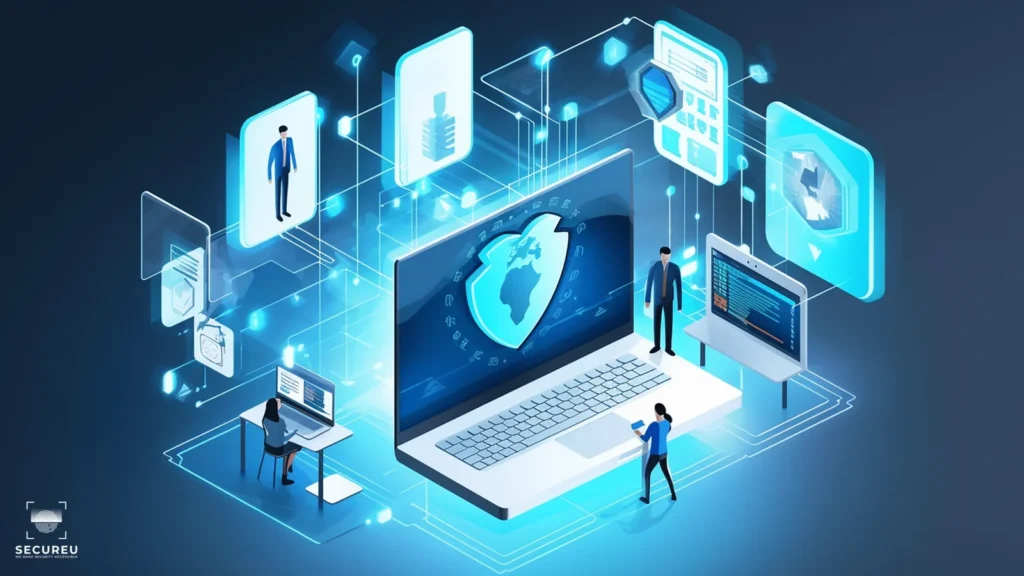Guardians of the Game: The Importance of Cybersecurity in the Gaming World
Introduction In the fast-evolving landscape of the digital age, where pixels meet passion, the gaming world stands as a thriving ecosystem. With millions of players engaging in virtual realms, the importance of cybersecurity in the gaming industry cannot be overlooked. As gamers immerse themselves in captivating virtual adventures, the guardians of the game, both players and platforms, must be equipped to fend off the lurking threats in the digital shadows. Understanding the Stakes Gaming platforms have become lucrative targets for cybercriminals due to the vast amounts of personal and financial information stored within them. Player profiles, payment details, and even in-game assets have become digital treasures for those seeking to exploit vulnerabilities. As the gaming industry continues to soar, so does the need for robust cybersecurity measures. Player Vigilance: Shielding the Digital Self Players are the frontline defenders of their gaming experience. It begins with simple yet effective practices, such as creating strong, unique passwords for gaming accounts. The use of two-factor authentication adds an extra layer of defense, ensuring that even if passwords are compromised, unauthorized access remains a difficult challenge to overcome. Gamers should also stay informed about phishing scams that often masquerade as game-related emails or messages. Clicking on suspicious links can lead to account compromise or the installation of malicious software. A watchful eye and a healthy dose of skepticism are essential tools in a player’s cybersecurity arsenal. Platform Armour: Building Fortresses Against Cyber Threats Gaming platforms, akin to medieval castles, must fortify their defenses to repel cyber invaders. Regular security audits and updates are crucial to patch vulnerabilities and stay ahead of evolving threats. Encryption of sensitive data, both in transit and at rest, is non-negotiable in safeguarding player information. Robust firewalls and intrusion detection systems act as vigilant gatekeepers, monitoring and filtering incoming traffic for potential threats. The implementation of advanced anomaly detection technologies can identify unusual patterns of behavior, helping to thwart attacks before they can cause significant damage. Securing the In-Game Economy In the gaming world, virtual currencies and in-game assets have real-world value. From virtual gold to rare skins, cybercriminals are drawn to these digital treasures. Blockchain technology has emerged as a game-changer in securing in-game economies. By decentralizing transactions and ensuring transparency, blockchain makes it significantly more challenging for cybercriminals to manipulate or exploit the system. Educating the Gaming Community A well-informed gaming community is a powerful ally in the fight against cyber threats. Gaming platforms should invest in user education programs, teaching players about the latest cybersecurity risks and best practices. Creating a culture of security consciousness within the gaming community not only protects individuals but strengthens the entire ecosystem. The Future of Gaming Security As technology advances, so do the tactics of cybercriminals. The future of gaming security lies in the integration of artificial intelligence and machine learning. These technologies can analyze vast amounts of data in real time, identifying and responding to emerging threats with unprecedented speed and accuracy. Predictive analytics can anticipate potential vulnerabilities, allowing for proactive measures before an attack occurs. Conclusion: United We Stand, Divided We Fall In the dynamic world of gaming, where fantasy meets reality, the guardians of the game must unite to face the growing challenges of cybersecurity. Players, platforms, and the industry at large must collaborate to create a secure and resilient environment. Through vigilance, education, and the embrace of cutting-edge technologies, the gaming community can continue to explore, compete, and connect in the digital realms, confident in the knowledge that their adventures are shielded from the shadows of the virtual world. Reach out to us today & let’s talk about how we can help you! Website: https://secureu.in | E-mail: contact-us@secureu.in | Contact us: Instagram, TwitterYoutube & LinkedIn
Guardians of the Game: The Importance of Cybersecurity in the Gaming World Read More »
Introduction In the fast-evolving landscape of the digital age, where pixels meet passion, the gaming world stands as a thriving ecosystem. With millions of players engaging in virtual realms, the importance of cybersecurity in the gaming industry cannot be overlooked. As gamers immerse themselves in captivating virtual adventures, the guardians of the game, both players and platforms, must be equipped to fend off the lurking threats in the digital shadows. Understanding the Stakes Gaming platforms have become lucrative targets for cybercriminals due to the vast amounts of personal and financial information stored within them. Player profiles, payment details, and even in-game assets have become digital treasures for those seeking to exploit vulnerabilities. As the gaming industry continues to soar, so does the need for robust cybersecurity measures. Player Vigilance: Shielding the Digital Self Players are the frontline defenders of their gaming experience. It begins with simple yet effective practices, such as creating strong, unique passwords for gaming accounts. The use of two-factor authentication adds an extra layer of defense, ensuring that even if passwords are compromised, unauthorized access remains a difficult challenge to overcome. Gamers should also stay informed about phishing scams that often masquerade as game-related emails or messages. Clicking on suspicious links can lead to account compromise or the installation of malicious software. A watchful eye and a healthy dose of skepticism are essential tools in a player’s cybersecurity arsenal. Platform Armour: Building Fortresses Against Cyber Threats Gaming platforms, akin to medieval castles, must fortify their defenses to repel cyber invaders. Regular security audits and updates are crucial to patch vulnerabilities and stay ahead of evolving threats. Encryption of sensitive data, both in transit and at rest, is non-negotiable in safeguarding player information. Robust firewalls and intrusion detection systems act as vigilant gatekeepers, monitoring and filtering incoming traffic for potential threats. The implementation of advanced anomaly detection technologies can identify unusual patterns of behavior, helping to thwart attacks before they can cause significant damage. Securing the In-Game Economy In the gaming world, virtual currencies and in-game assets have real-world value. From virtual gold to rare skins, cybercriminals are drawn to these digital treasures. Blockchain technology has emerged as a game-changer in securing in-game economies. By decentralizing transactions and ensuring transparency, blockchain makes it significantly more challenging for cybercriminals to manipulate or exploit the system. Educating the Gaming Community A well-informed gaming community is a powerful ally in the fight against cyber threats. Gaming platforms should invest in user education programs, teaching players about the latest cybersecurity risks and best practices. Creating a culture of security consciousness within the gaming community not only protects individuals but strengthens the entire ecosystem. The Future of Gaming Security As technology advances, so do the tactics of cybercriminals. The future of gaming security lies in the integration of artificial intelligence and machine learning. These technologies can analyze vast amounts of data in real time, identifying and responding to emerging threats with unprecedented speed and accuracy. Predictive analytics can anticipate potential vulnerabilities, allowing for proactive measures before an attack occurs. Conclusion: United We Stand, Divided We Fall In the dynamic world of gaming, where fantasy meets reality, the guardians of the game must unite to face the growing challenges of cybersecurity. Players, platforms, and the industry at large must collaborate to create a secure and resilient environment. Through vigilance, education, and the embrace of cutting-edge technologies, the gaming community can continue to explore, compete, and connect in the digital realms, confident in the knowledge that their adventures are shielded from the shadows of the virtual world. Reach out to us today & let’s talk about how we can help you! Website: https://secureu.in | E-mail: contact-us@secureu.in | Contact us: Instagram, TwitterYoutube & LinkedIn



